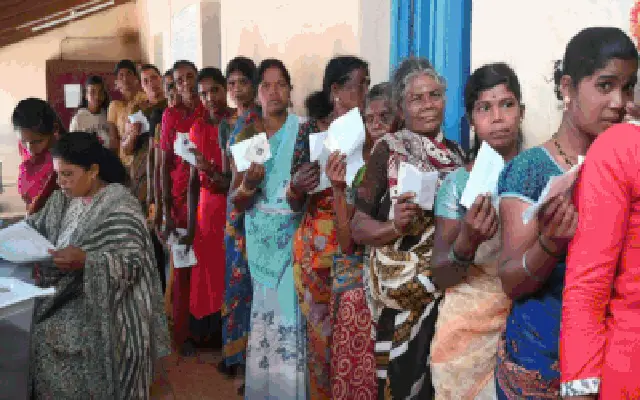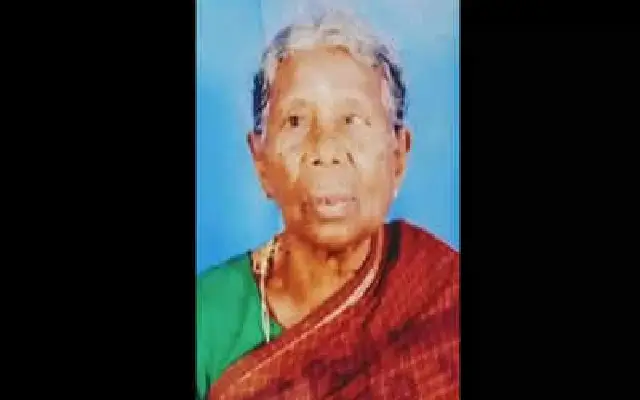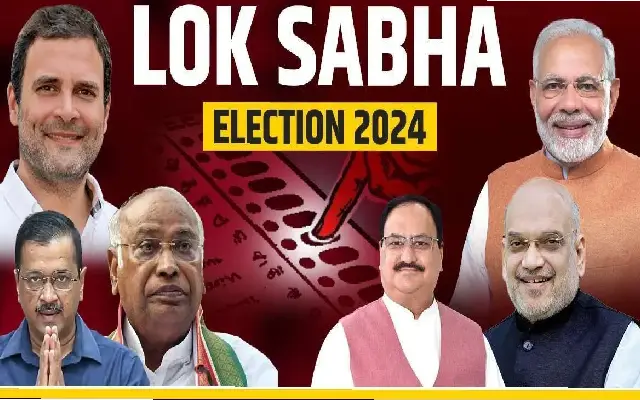He resembles in many ways the lead character of Rohit Shetty’s 2011 Bollywood flick “Singham” and its 2014 sequel – an upright, no-nonsense officer that every town in the world would love to have. He cracks the whip on the wrong and lends a friendly hand to the right. His deeds and attitude have earned him apt titles like ‘Udupi Singham’ and ‘Anna’. Why not, after all people of Udupi love him for what he is and the very thought that he would be transferred soon, make the citizens of Udupi turn emotional.
 We refer to Super Cop Annamalai, Superintendent of Police, Udupi District.
We refer to Super Cop Annamalai, Superintendent of Police, Udupi District.
Hailing from Coimbatore, he holds a BE Mechanical degree from PSG College of Technology, Coimbatore and an MBA degree from IIM Lucknow, specializing in marketing and strategy and his educational background is evident in his policing – which is about planning, precision, persuasion and strategy.
After clearing UPSC exams in 2011, he had his first posting as ASP Karkala, during which he hit the headlines for his endeavors in transforming Karkala police station into a model police station. Since then, there has been no looking back. Accolades have been coming his way, not just for solving some of the most complicated cases, but also for showing the world that Khaki and Lathi too can have a humane face!
He spoke exclusively to Newskarnataka/Karnataka Today on a range of issues, from the pressures of policing to his own work-life balance.
Excerpts:
On Policing strategy:
Even as police personnel in other places have been struggling to convince riders to wear helmets, you implemented the same successfully in your jurisdiction, even before HC made it mandatory. What was the mantra?
It is rather difficult to implement something that is not a law. But, what we did here in Udupi was, even before the HC made wearing helmet mandatory, we went to students and told them that they should voluntarily start wearing helmets because it is good for them. Slowly we took parents and colleges into confidence.May be, by personally going to colleges and holding meetings with students, parents and college staff we could bring in the rule swiftly. Most tasks can be accomplished with talks rather than force.
Was this a challenging task?
Well, acceptance of an idea depends on the idea itself and then the person who is giving that idea.
In Udupi, people have a positive image of police-right from constables to higher-ups. The public understood that what was being told was for a good cause. We spoke to them about real life incidents where young riders lost life just because they were not wearing the necessary head gear. This struck the right chord and Udupi scripted history.
Udupi district has always been a communally sensitive region. How do you go about tackling this grave issue?
There is process of creating a communal violence. It first begins with two persons fighting, it then takes on colours –a fight between a Hindu and a Muslim or a Muslim and a Christian or another combination.
Slowly it takes the face of a fight between groups of two religions. It is then blown out of proportion so that within no time it snowballs into a communal violence.
We thought, to prevent such incidents we must take police closer to the people so that people start trusting us. In 2015, we put in lot of efforts in this regard and organized programmes in the schools etc.
We regularly conduct Jana Samparka Sabhe to connect with the people and this has worked in favor of the society.
You have launched Mobile apps and websites. Still people are not coming forward to register complaints. Why so, is it because of the official attitude or the procedure of the department?
Through the website we get an average of 3 complaints per day and for Suraksha we get around 6 complaints per day which is phenomenally good.
But at the same time, we are all public servants. See if you go to electricity office to pay the bill or LPG Company, they are all service providers. Service providers will invariably take more time.
If a Sub-inspector cannot solve a case in one day, the complainant comes to the SP office next day seeking justice. Obviously we cannot blame them because they want to get immediate resolution. In the department, criminal cases are of more importance than civil cases.
With limited resources, we cannot perform the way the public would want us to perform. The impatient complainants soon go to Human Rights Commission or some other competent authority for solace.
People cannot be blamed, but we too have our constraints.
The apps and website will take some more time to see changes.
On his and his department’s work culture:
There are many who find you to be their role model, there are a few who feel that your no-nonsense, dare-devil attitude is more of a publicity stunt. What is your take on this?
There are two ways I can work. First, I come to my office at 8 am, sit here, look into files, do nothing and leave the office by 5 pm or 6 pm. This will also earn me my salary and as far as leaving a mark is concerned people will still know that there was an SP who worked here.
Then there is second case, where I treat this chair as an opportunity and take every day as a chance to bring about some change in the society. I believe in the latter option. I have not come to this position because this job was not the only option I had. I am an IIM pass out, who had worked abroad for a while. But, I quit all that and took up this as a profession because I wanted to make a difference with my capabilities.
I come to office every day with a thought that this is the day I can make a great impact on society.
Yes, many feel our work is a publicity stunt because we work on streets, taking on law-breakers.I believe, dying in an accident is the worst thing to happen, but that also creates a lot buzz and if people think it is publicity, then it only reflects their thought process.
I will stick to my principle that compels me to use this position to create maximum impact on society.
You have cracked many crime cases, which have bagged you a lot appreciation. What is that special quality in you that helps in cracking such cases?
Frankly speaking all my constables and sub-inspectors have lot of potential and all the ground work is done by them. I do not go to the field. We give them directions and provide them with the correct approach. Having said that I do not rate Udupi police team to be the best in cracking crime cases, but we are moving upwards. There are still cases pending like Rathna Kotary case, Kaup murder etc but overall I can say we have a professional approach. There are many good sub-inspectors, who just need the right kind of direction.
Which has been your most difficult case/most memorable case in your career?
My career is very short as of now to talk about this, yet I consider the Akshatha Devadiga case to be a very challenging case.
Students have been on streets seeking justice in the case. Rallies, protests, bandhs have been held in the case. These are all students, mainly young boys, who needed to be dealt with maturity.
Tackling any crime case needs time… it is a process…. It is like a race… for the winner to emerge, the race needs to be over.
On handling pressure:
Tackling crime cases is not an easy task. How do you handle the pressure?
Yes, we have lot of pressure and that comes from media, because they too have to do their work of reporting and updating about a particular case. We have pressure from our higher-ups, because we are answerable to many because most the people expect us to tackle the case as soon as possible. It is not easy to tackle a crime case because you do not have CCTV footage in all the cases and hence you cannot just go pick up the culprit. Over 90 per cent of crime cases need a meticulous approach, which takes time.
It is commonly said that once a person becomes a cop, he becomes a slave of politicians. What do you say?
Politicians have their own roles. It is a democracy. An MLA or an MP is elected for 5 years. He has the urgency to get things done within this period. But, a cop is someone who is an enforcement officer and servant of the law. Politicians will come and go but the law will stay.
Some policemen do bow down to politicians way more than required. I don’t blame them, we should respect them, and it is not that all politicians are bad. There are exceptionally great politicians too. But, we need to work with them convincing them of what we do.
Suppose a minister tells me to do something, which is illegal, either I can say -“I won’t do it… do whatever you want!” or I can say – “Sorry sir, I won’t do it now, but next time will see” . It is about how you convince them.
Being a people’s representative, a politician has his own way of doing things. We have to make sure that the communication is good and they are convinced with what we do.
Your boundary stops at law. You do something extra because you want something extra in return. You are violating your own law for which you are supposed to be the manager.
Do you think a policeman can manifest his political inclination either by words or by action?
Police force has to be completely apolitical force. We may have opinions but we cannot have any inclinations once we don our uniform. Whatever your personal preferences are, you would have to keep it home.
If you go to other countries, US or Europe every officer is associated with a Democratic Party or RepublicanParty. That is the highest level of maturity. But in India that time is yet to come. Right now, it is better to be just ‘apolitical’.
But, there is a section that believes that you are a supporter of the Congress. Is that true?
I do not support anybody, but yes, I do support good politicians.
On motivating police personnel
How do you make sure that your people are motivated enough to give in their best?
Police department is ‘man made’, unlike the corporate sector, which is more of computers and machinery. Hence, handling the police department needs a humane approach. A lot needs to be done still, specifically in improving the processes at the police stations.
You need to keep your own people happy to keep outsiders happy! If I harass my men, deny them leave, put them under scorching heat throughout the day, they will vent out their frustration on general public. This will only add to the crisis.
In 2015, a lot of effort was put in reforming ourselves. We conducted communication courses, we forced them to take medical test, for traffic we got the best possible people and we removed older people in the station, made sure corrupt hands were kept away from important postings, made sure everyone got adequate leave, weekly offs etc.
This made a difference. The policemen were happy and the same was reflected in their dealings with the public.
What guidance or advice you would like to give to those cops who want to grow?
I am again a small man, but yet, I would want to say that first mistake we all do is we think theoretically about policing. It is a practical field. We need to have that common sense or common man’s perspective to solve the issues. If you are an IPS officer and you have the ‘textbook attitude’, then it would be very difficult to solve cases. It is all about pure common sense. Lot of people, after becoming cops, they do not improve themselves- they don’t take care of their bodies, they believe the day you become a cop it is over. A cop has to renew himself every day. Read books, exercise, enhance knowledge, keep track of criminals…. All in all improve yourself so that you become a successful police officer. That is the only advice I can give.
On work life balance:
Do you get time to spend with your family?
Yes, absolutely. I do not compromise on that. Morning upto10 am, is my own time. Evening after 7 is my own time. I do cycling, swimming and on Sundays I play cricket. The mistake we do is either we keep it completely personal or completely professional. We need to find a space and draw the line. This is where my personal life starts and this is where professional life starts. I do not believe in working for 20 hours. You should be able to finish your work in 8 hours. Put a system in place, empower people, delegate, create leadership skills all around, let people take responsibilities, honor them, advise them and work will happen.

















